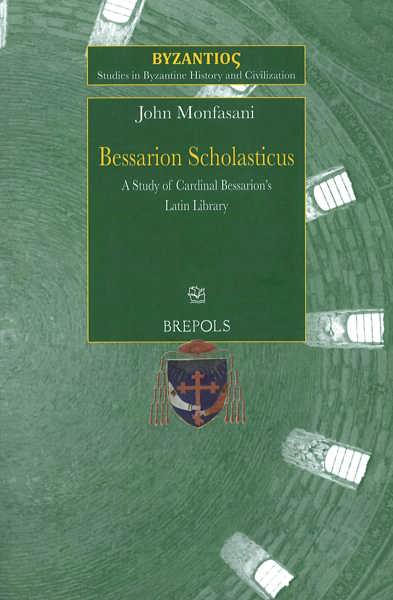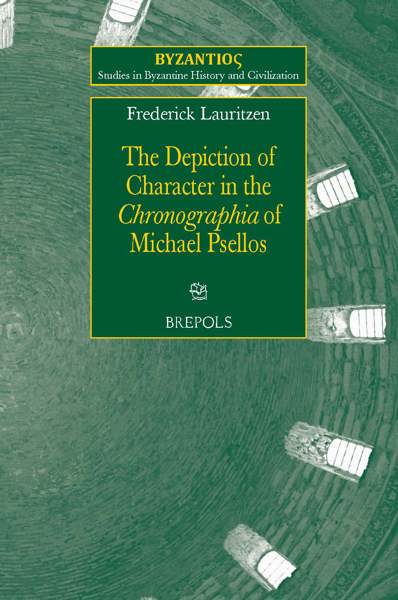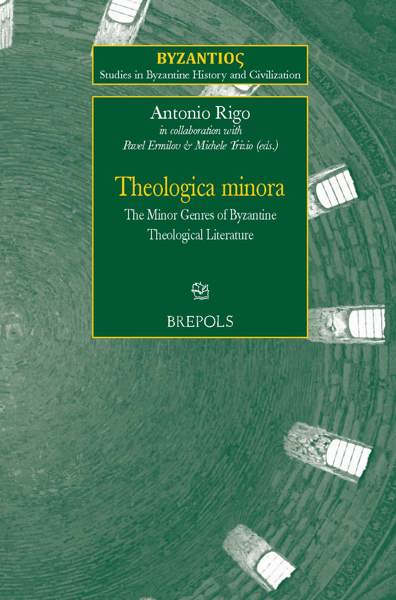
Bessarion Scholasticus: A Study of Cardinal Bessarion’s Latin Library
John Monfasani
- Pages: xiv + 306 p.
- Size:156 x 234 mm
- Illustrations:1 b/w
- Language(s):English
- Publication Year:2012
- € 80,00 EXCL. VAT RETAIL PRICE
- ISBN: 978-2-503-54154-9
- Paperback
- Available
- € 80,00 EXCL. VAT RETAIL PRICE
- ISBN: 978-2-503-55885-1
- E-book
- Available
Inside one of the greatest personal libraries ever assembled
"The result of Monfasani's labors (...) is a meticulously prepared and valuable contribution to Byzantine and Italian intellectual history during the Renaissance." (Joseph S. Freedman, in: Sixteenth Century Journal, XLV/1, 2014, p. 165)
"This study aptly reveals the thinker behind the books, and in lucid fashion explains his likely decision-making in acquiring and using some of his Greek, but especially Latin library. In so doing, Monfasani expands our understanding of Bessarion as a Vatican insider, a theologian, and banished Byzantine, through a manner of study—philology—that is less often conducted, precisely because it is so difficult. (...) The mastery of that in itself is rare, but to also encounter a philologist who can write so clearly and make these very complex matters seem simple is just as rare. This is why I appreciate so much the work that John Monfasani has done. He remains an example for the coming generations of scholars in this field to emulate." (Christopher Deliso, in: The Traveller's Literary Supplicant - Substack Newsletter, Read More)
John Monfasani is a Professor at the Department of History, University at Albany – State University of New York. His field of interest is European intellectual history, with a special interest in Renaissance intellectual and religious history. He has published mainly on Greek and Latin humanists in fifteenth-century Italy.
Bessarion (d. 18 November 1472) first made a name for himself as one of the Greek spokesmen at the Council of Ferrara-Florence in 1438-39. After becoming a cardinal, he several times entered conclaves as a serious candidate for the papacy. The library he bequeathed to the Republic of Venice, destined to become the historic core of the modern Biblioteca Marciana, is justly famous for its extraordinary collection of Greek manuscripts. Celebrated in his own time for his patronage of humanists, he was also Italy’s leading Platonist before the emergence of Marsilio Ficino. He always held in reverence his teacher in Greece, the Neoplatonist philosopher George Gemistus Pletho, and his In Calumniatorem Platonis, printed in Rome in 1469, was a pivotal text in the Plato-Aristotle controversy of the Renaissance. Nonetheless, Bessarion was a great admirer of medieval scholasticism and especially of Thomas Aquinas.
'Bessarion Scholasticus' examines Bessarion’s relationship with Latin culture as evidenced by his library, personal relations, and writings. It examines his humanist collection, his scholastic collection, his Thomism, and the circle of scholars associated with his household, called Bessarionea Academia by contemporaries. Half of 'Bessarion Scholasticus' is a catalogue raisonné of scholastic texts and manuscripts in Bessarion’s library. The volume offers the first edition of Bessarion’s autograph listing of the differences between Scotists and Thomists as well as first editions of prefaces by various authors addressed to Bessarion. In addition, the appendices include statistical tables of Bessarion’s holdings of Latin classical authors and of texts in civil and canonical law and a register of the members of his cardinalitial famiglia before he became cardinal legate in Bologna in 1450.




